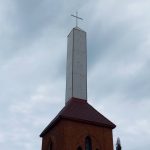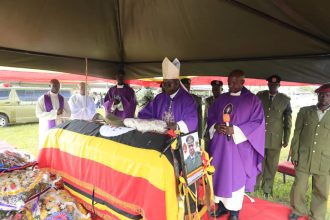When Ibrahim Ssemujju Nganda was elected for a third time to Parliament in 2021, he was quite sure what pushed him over the finish line.
“I have a very urban constituency that follows political shows on TVs, and that helped me in one way or another,” the Kiira Municipality lawmaker revealed.
One notable TV appearance that boosted Mr. Ssemujju’s popularity was his showdown with then Security Minister Elly Tumwine on the state broadcaster. This happened just two months before the 2021 elections, amidst a turbulent period when the country’s security forces were involved in clashes following the arrest of Robert Kyagulanyi Ssentamu, the National Unity Platform (NUP) party’s flag bearer.
In that TV face-off, Mr. Ssemujju didn’t mince words. He criticized the security apparatus for what he saw as excessive force, highlighting instances of alleged extrajudicial killings and abuses of power.
This no-holds-barred approach endeared Mr. Ssemujju to a legion of admirers, mostly active in online spaces like X (formerly Twitter). Among these were social activists known as exhibitors, who held leaders accountable through their exhibitions.
However, when Mr. Ssemujju himself became the subject of criticism after an exhibition spotlighted alleged abuses of power in Parliament, the tables turned. His erstwhile supporters aimed their scrutiny at him.
Accusations flew, with Mr. Ssemujju being accused of accepting hefty per diem rates for foreign trips, including visits to Mecca, and facing questions for his perceived silence on abuses of power.
In response, Mr. Ssemujju provided detailed explanations for his trips, clarifying his attendance at meetings in Dubai and Algiers. He justified the payments, stating they were made when funds became available.
Regarding his trip to Mecca, Mr. Ssemujju defended it as a response to perceived religious discrimination, arguing that sponsoring only Christians for trips to Rome while neglecting Muslims was unfair.
But despite his explanations, Mr. Ssemujju’s critics remained unsatisfied. They saw his defense of the payments as contradictory to his past advocacy for frugal spending of public resources.
In the past, Mr. Ssemujju had authored reports criticizing President Museveni’s lavish expenditures, highlighting what he perceived as excessive staffing and spending at State House.
However, his critics pointed out that he seemed less vocal when it came to scrutinizing Speaker Anita Among’s expenditures, raising questions about his consistency.
In response, Mr. Ssemujju emphasized his focus on removing President Museveni from power, believing that addressing him would lead to broader changes. He dismissed calls to hold other officials accountable, arguing that dealing with Museveni was the priority.
Yet, this stance drew further criticism from activists, who saw it as a double standard. They questioned whether two wrongs made a right and expressed disappointment in Mr. Ssemujju’s approach.
Despite the backlash, Mr. Ssemujju defended his actions, citing strategic considerations and parliamentary rules that constrained his actions.
The suspension of another lawmaker, Mathias Mpuuga, by the NUP party added more fuel to the fire. With NUP grappling with internal issues, Mr. Ssemujju may find himself facing tough questions from his constituents.




















